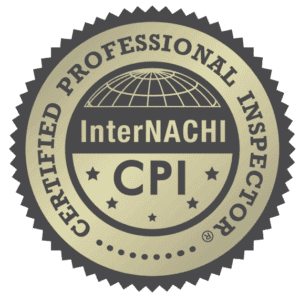It's the humidity that gets you, or that's how the saying goes, but what does that really mean? While most people have a basic understanding that humidity can make it feel warmer or cooler outside than the temperature suggest.
Why is that the case and what does that matter when it comes to your home?
I’m going to be writing this article as a 3-part series to break down the subject as I feel like it is essential information for every homeowner to know. In this first part, I am going to dive into what humidity is and not really touch too much on the effects it has on the home just yet. In future posts, I will discuss the impact it can have on mold growth in your home and then on the air conditioning within your home. With that said, let's get started on the basics:
What is humidity?
The simplified answer is the amount of water vapor that is within the surrounding air. Water vapor is just the gas form of water. The more water vapor there is in the air, the more humid it is considered. There are two ways to measure humidity, relative or absolute, and this will be discussed below.
Relative vs. Absolute Humidity
Most of the time, you will see the humidity listed as a percentage, as the air's humidity is 50%. This is the relative humidity of the air. Air has a maximum capacity of water vapor it can hold, so when it reaches that threshold, it is considered to be 100% relative humidity. A good example of what relative humidity is, say a specific volume of air can hold 1 cup of water, but is currently holding half a cup of water, the relative humidity is then 50%.
Pretty straightforward, right? Well, wait, there is more. The capacity for air to hold water vapor increases as the air temperature rises (as well as decreases if the temperature drops). As an example, if you increase the air temperature from 60° F to 80° F, the air's capacity to hold water vapor now doubles. If a whole room can hold 1 cup of water vapor at 60° F, it will be able to approximately hold 2 cups of water vapor at 80° F.
In the examples above, the cups of water vapor would be the absolute humidity. Absolute humidity is just the counted mass of the water vapor in a given system, and technically that is all you need to know. For engineers and scientists, they count the absolute humidity in units of grains of moisture per pound of dry air (WTH?). To simplify things, we will use simple units like cups and gallons throughout this series.
Dry Bulb vs. Wet Bulb Temperatures
As mentioned in the introduction, more humid environments feel warmer even though the temperature is listed to be the same. The main reason behind this phenomenon is when the temperature is measured by most thermometers, it's measuring the dry-bulb temperature, which does not factor in humidity. The wet-bulb temperature is harder to measure, but it factors in moisture into the equation.
A 70° F wet-bulb temperature is the same as a 70° F dry-bulb temperature at 100% humidity or equivalent. As an example, an 80°F day at 60% relative humidity is approximately the same wet bulb temperature (70° F wet bulb) at 95° F, 30% humidity day. This is a fundamental concept going forward as we talk about air conditioning, we don't just want cooler air we sometimes want dryer air too.
Dew Point & Condensation
Everyone has experienced dew before, generally in the morning on your car, or on some leaves. Dew occurs because the vapors in the air condense when the temperature drops saturation temperature. What ?!?!? Let's continue our conversation and simplify things by revisiting a relative versus absolute humidity example.
During a hot, humid, summer day, let's say the air conditions are 90° F at 60% relative humidity (absolute is around 1.2 cups for that area of air). If the temperature cools to 70° F at night, the air only can hold 1.1 cups of water vapor, which is 0.1 cups different than the absolute humidity of the warm day's air. So what happens to that 0.1 cups of water vapor? It condenses into the water droplets that you see on your car in the morning. This is called condensation and will be important going into the other articles in this series.
Last but not least is the dew point. The simple definition for dew point is the temperature condensation will start to occur for a given condition. Revisiting the 90° F, 60% relative, and 1.2 cups absolute day. The dew point for this exact condition is 73° F because at 1.2 cups absolute humidity, the relative humidity will be 100%, and at 73° F and at any temperature under that point, condensation will start to occur.
Psychrometry & More Information
For the sake of keeping things easy for the average homeowner, I simplified a lot of concepts and terms in this article. If you are interested in learning more about humidity concepts and calculations, you may find this psychrometric chart useful to study. Or feel free to reach out to me at info@homeinspectiongeeks.com to ask any questions about resources.
In the next article, we will talk about why it is essential to control humidity in your unconditioned spaces and how not doing so can lead to mold growth.


